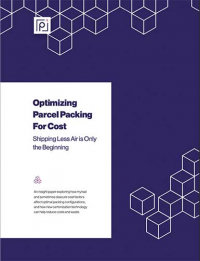Trump floats gas tax increase proposal. Does it have potential?
Latest Material Handling News
Considering that the federal gasoline tax has not been raised from its current levels of 23.4 cents for diesel and 18.4 for gasoline since 1993, it is somewhat surprising at times that it gets as much as attention as it does.
As to why that is the case, the reasons vary. But as one of the primary revenue sources for the Highway Trust Fund, which routinely pays out more than it collects, it really is high time for the tax to be raised. That has been the thought expressed by many high-powered trucking industry executives, as well as a whole slew of other industry stakeholders, too.
As we have written about extensively, having sufficient capital in the HTF is critical as its revenues are allocated for federal highway, transit, and highway safety programs. What’s more, diesel taxes represent about 90 percent of Highway Trust Fund (HTF) net revenues.
The issue of Congress being proactive when it comes to possibly raising the federal gasoline tax is more perhaps even more elevated now than it has been before, considering that our nation’s infrastructure remains in a full-blown state of disrepair with changes needed long past yesterday.
That is why comments made earlier this week by President Trump in which he said he would consider raising the tax got a fair share of attention.
The fact that the possibility of the tax being raised was suggested is at the least a good sign, but obviously more needs to be done than just talk about it.
Because as things stand now, the premise of raising the gas tax historically has been nothing more than a longstanding game of “kick the can” over and over and over.
What’s more, going back to 2008 Congress has had to take $143 billion from other sources into the HTF to fill needed gaps in investment, due in large part to the gasoline tax not being raised. That point gets even more magnified when one considers that HTF-based revenue did not even raise $40 billion ($37.4 billion) in fiscal year 2015, according to the Congressional Budget Office. And the CBO has said that the HTF will be insolvent in the next ten years unless a workable funding solution emerges.
Raising the gasoline tax ostensibly has never truly been on the table as a viable funding option, and the reason for that, according to many people, is the lack of political will or incentive.
In fact, at an industry conference around five years ago, former DOT Secretary Ray LaHood explained that the Obama-led White House was opposed to raising it, due to economic conditions at the time and essentially saying that raising the tax was not under any type of consideration.
And while President Trump floated the idea of raising the tax, a report published in The Hill this week more or less squashed that idea, noting how Republicans are opposed to the concept and calling it a “politically fraught issue that lawmakers have avoided for years.”
But that does not necessarily mean that it is falling on deaf political ears either.
A letter addressed to Senator Mike Enzi (R-WY), Chairman of the Senate Committee on the Budget, and Senator Bernie Sanders (I-VT), the committee’s Ranking Member, from various business and transportation concerns, including the U.S. Chamber of Commerce, the National Association of Manufacturers, the American Association of State Highway and Transportation Officials, and Americans for Transportation Mobility, among others, highlighted the “importance of federal transportation investment to growing the U.S. economy and creating jobs.”
Taking that thesis a step further, the letter pointed out that while the 2015 FAST (Fixing America’s Surface Transportation) Act provided sufficient HTF resources to support the relatively modest surface transportation investment it authorized through FY 2020, it also requires $70 billion in transfers to reach that goal, while also citing CBO data stating that there will be a nearly $20 billion average annual shortfall between existing revenue and the amount needed to prevent cuts in highway and public transportation investment upon expiration of the FAST Act.
This funding predicament and subsequent impacts on both the federal budget and U.S. economy require a long-term solution “to stabilize and grow federal surface transportation as part of any tax reform initiative,” the letter said. And should the HTF revenue shortfall not be addressed, would again require Congress to shift funds from other parts of the budget to “support another in a long string of one-time trust fund infusions.”
Remember how “fun” those were in the past? Grin. As the letter points out all those actions do not give states the long-term planning required while also passing the buck, so to speak, to the next Congress at a higher cost.
Needless to say, nothing has truly changed when it comes to the state of the HTF and the prospect of raising the gasoline tax. Ignoring a problem will not make it go away. Does Congress know that?

Article Topics
Blogs News & Resources
Latest in Materials Handling
Hyster recognizes Dealers of Distinction for 2023 Carolina Handling names Joe Perkins as COO C-suite Interview with Keith Moore, CEO, AutoScheduler.AI: MODEX was a meeting place for innovation Walmart deploying autonomous lift trucks at four of its high-tech DCs Coles shops big for automation Kathleen Phelps to join FORTNA as chief financial officer Coles automates grocery distribution in Australia More Materials HandlingAbout the Author
Subscribe to Materials Handling Magazine

Find out what the world's most innovative companies are doing to improve productivity in their plants and distribution centers.
Start your FREE subscription today.
April 2024 Modern Materials Handling

Latest Resources










